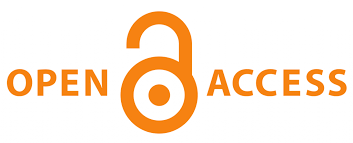Development of methods of designing modern gas turbines
- Authors: Inozemtsev A.A.1, Khairulin V.T.1, Tikhonov A.S.1, Samokhvalov N.Y.1
-
Affiliations:
- Open Joint Stock Company «Aviadvigatel»
- Issue: Vol 13, No 5-1 (2014): Special Issue
- Pages: 139-147
- Section: ISSUE WITHOUT SECTION
- URL: https://journals.ssau.ru/vestnik/article/view/2491
- DOI: https://doi.org/10.18287/1998-6629-2014-0-5-1(47)-139-147
- ID: 2491
Cite item
Full Text
Abstract
The paper is focused on the evaluation of integral and local parameters of advanced aero engine highpressure and low-pressure turbines using the method of 3D numeric simulation in ANSYS CFX. The models used were very detailed high-pressure and low-pressure turbine models with adjoined cavities and a transition duct consisting of 577 million finite elements. Numerical analysis was conducted both in stationary and nonstationary setup using BSL and SST models of turbulence. The resulted design data were verified against the turbine test results. Deviations between design and test data, both local and integral, are insignificant (local deviation is not more than 5%). The results of numerical analysis show high level of turbines’ efficiency. The current configuration was optimized based on the results of verification, which allowed increasing HPT design efficiency by 0.4%. The model was taken as a basis for a series of works aimed at improving the key parameters of both individual turbine components and the module on the whole.
About the authors
A. A. Inozemtsev
Open Joint Stock Company «Aviadvigatel»
Author for correspondence.
Email: impex@avid.ru
Managing Director & General Designer
Russian FederationV. T. Khairulin
Open Joint Stock Company «Aviadvigatel»
Email: khairulin@avid.ru
Engineer Turbine Design Department
Russian FederationA. S. Tikhonov
Open Joint Stock Company «Aviadvigatel»
Email: tikhonov4@yandex.ru
Candidate of Science (Engineering)
Engineer Turbine Design Department
Russian FederationN. Yu. Samokhvalov
Open Joint Stock Company «Aviadvigatel»
Email: samohvalov@avid.ru
Engineer Turbine Design Department
Russian FederationReferences
- Menter F.R. Influence of Freestream Values on k-ω Turbulence Model Prediction // AIAA Journal. 1992. V. 30, no. 6. P. 1657-1659. doi: 10.2514/3.11115
- Menter F.R. Zonal Two Equation k-ω Turbulence Models for Aerodynamic Flows // 24th Fluid Dynamics Conference. 1993. Orlando, Florida. doi: 10.2514/6.1993-2906
- Baldauf S., Schulz A., Wittig S. High-Resolution Measurements of Local Effectiveness From Discrete Hole Film Cooling // Journal of Turbomachinery. 2001. V. 123. P. 758-765. doi: 10.1115/1.1371778
- Baldauf S., Scheurlen M., Schulz A., Wittig S. Correlation of Film Cooling Effectiveness from Thermographic Measurement at Engine Like Conditions // Proceedings of ASME Turbo Expo 2002: Heat Transfer, Manufacturing Materials and Metallurgy. 2002. V. 3 A. P. 149-162. doi: 10.1115/gt2002-30180
- Murari S., Sunnam S., Liu J.S. Steady State and Transient CFD Studies on Aerodynamic Performance Validation of a High Pressure Turbine // Proceedings of ASME Turbo Expo 2012: Turbine Technical Conference and Exposition. 2012. V. 8, parts A, B, and C. P. 2067-2077. doi: 10.1115/gt2012-68853
- Tikhonov A.S., Samokhvalov N.Yu., Sendyuryov S.I., Bazhin S.V. Aerodynamic and thermal designing of passageway surfaces of the hot section of modern GTE turbine // Vestnik dvigatelestroeniya. 2012. No. 2. P. 99-104. (In Russ.)
- Tikhonov A.S., Samokhvalov N.Yu. Split ring thermal engineering based on coproduction numerical simulation // Trudy MAI. 2012. No 52. Р. 19 (In Russ.)
- Tikhonov A.S., Samokhvalov N.Yu. Analysis of using shaped cooling holes to improve the quality of film cooling on the suction side of turbine nozzle guide vanes // Vestnik UGATU. 2012. V. 16, no. 5(50). P. 20-27. (In Russ.)
- Sendyuryov S.I., Tikhonov A.S. Development and comparative analysis of the effectiveness of design solutions for the refinement of turbine vane cooling // Gas turbotechnology. 2010. No. 10. P. 12-17. (In Russ.)
- Inozemtsev A.A., Sendyuryov S.I. Investigation and design of high-loaded turbine vane's cooling systems // Russian journal of heavy machinery 2010. No. 9. P. 2-4. (In Russ.)
Supplementary files




















